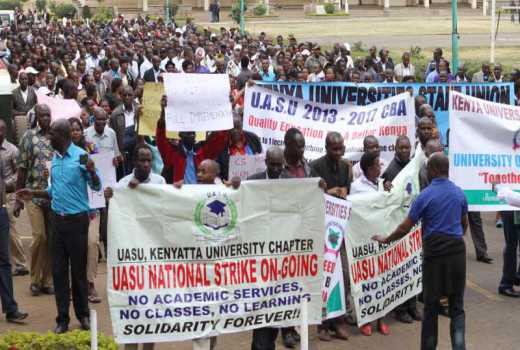×
The Standard e-Paper
Join Thousands Daily

The push for contract employment proposal as directed by former Education Cabinet Secretary Fred Matiang’i for university staff has slowed down.
Yesterday, it emerged that the new directive, which was to affect support staff and part of the academic workforce in public universities, may take longer to roll out.